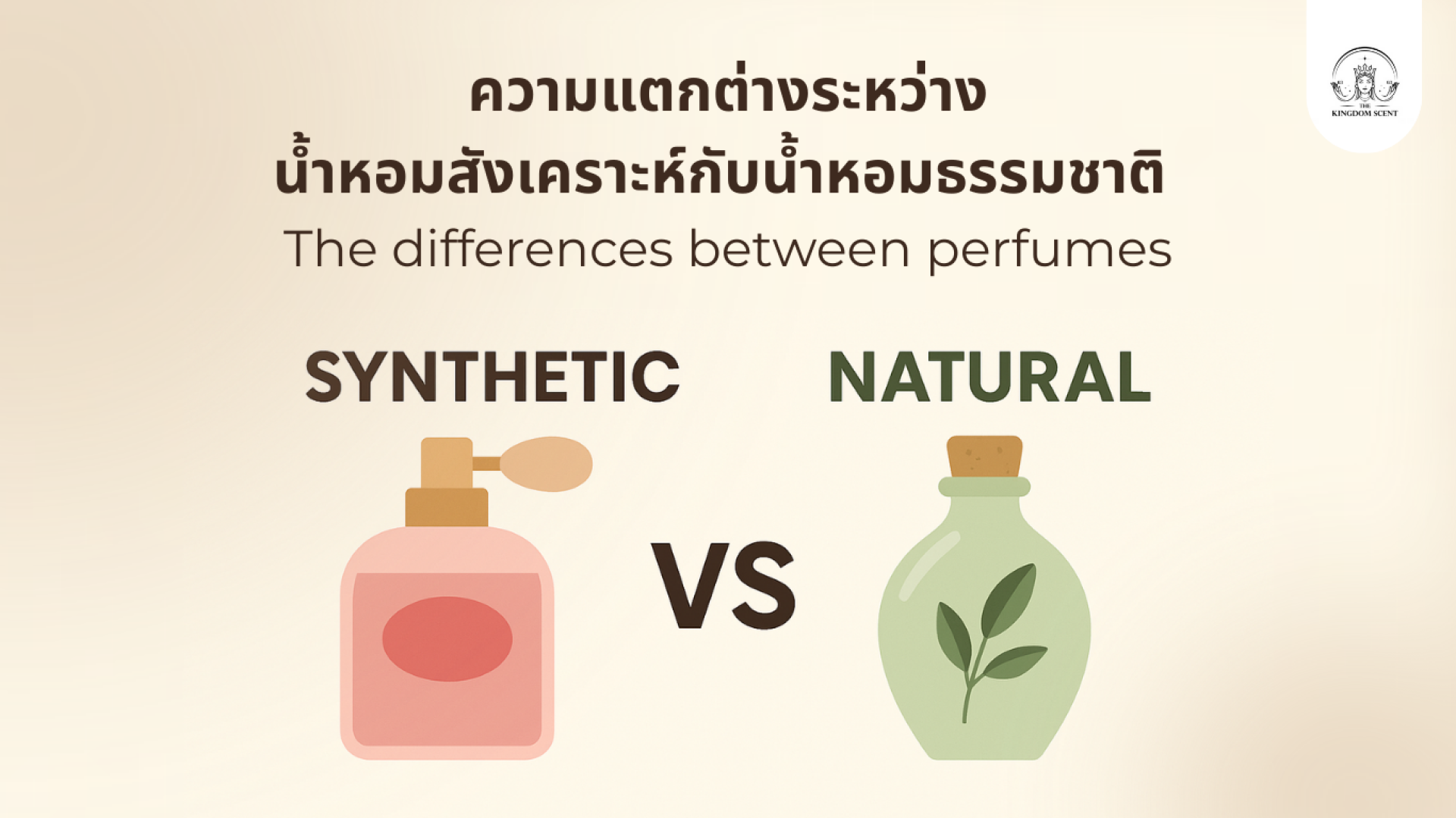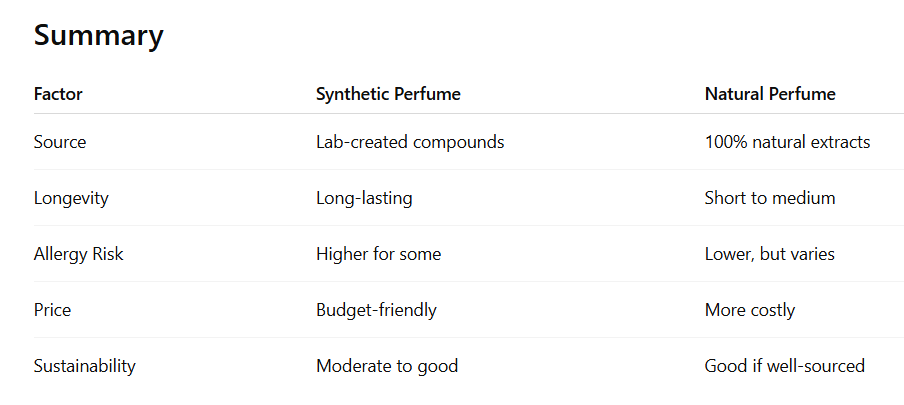Synthetic vs. Natural Perfume What’s the Difference?

In the world of perfumery, fragrances can either be synthetic or natural, each offering unique characteristics and benefits. This article explores the key differences between Synthetic Perfume and Natural Perfume, helping you make an informed choice.
Source
Synthetic Perfume: Created in a lab using chemical compounds such as alcohols and aromatics. Some replicate natural scents.
Natural Perfume: Extracted directly from natural sources like essential oils from flowers, leaves, woods, or fruits.
Longevity
Synthetic: Typically lasts longer some can stay on the skin all day.
Natural: Generally fades faster and may need reapplication.
Safety & Allergies
Synthetic: May trigger allergies or irritation, especially in sensitive individuals.
Natural: Often seen as safer, but some essential oils can still cause reactions.
Price
Synthetic: More affordable and easier to mass produce.
Natural: More expensive due to resource-intensive extraction processes.
Sustainability
Synthetic: Reduces dependence on natural resources but may involve environmentally harmful chemicals.
Natural: Considered eco-friendly if ingredients are sustainably sourced.

If you value lasting power and affordability, synthetic perfumes might be your go-to. But if you're into natural living and skin-friendly options, natural perfumes are worth exploring.


